year in review 2017-18
in the news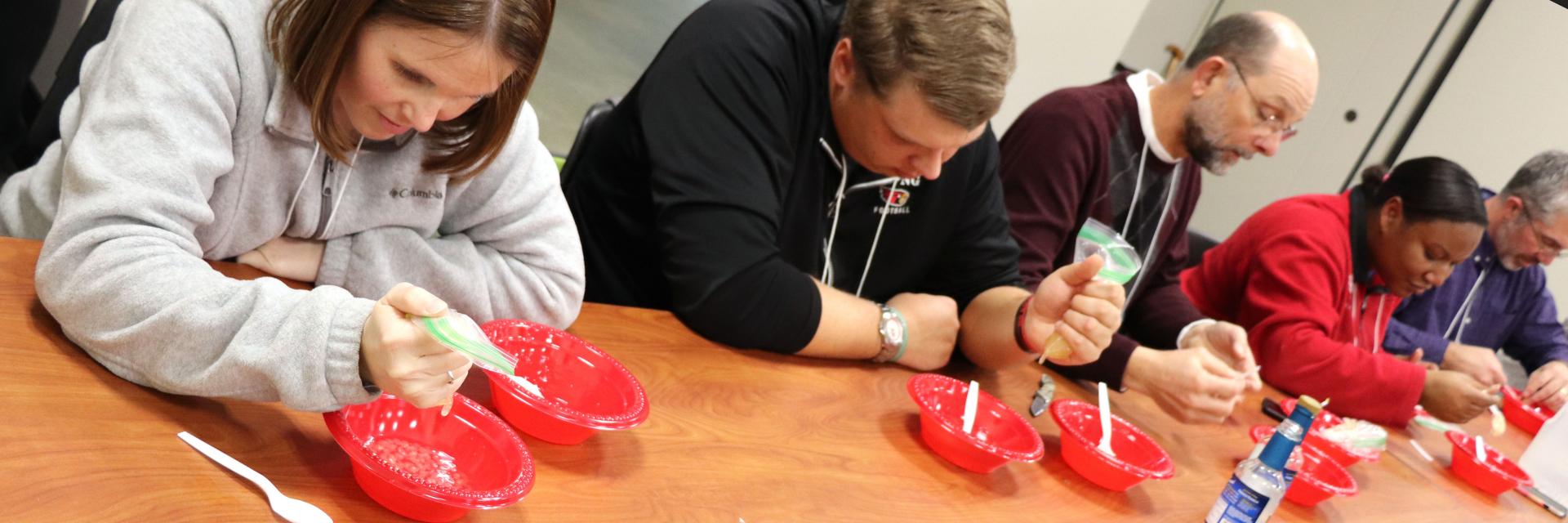
Mission of the CSMCE
The CSMCE strives to encourage, support, and challenge faculty in science, mathematics, and education to excel in all of UNL’s missions of teaching, research, and engagement through involvement in educational activities that i) enhance the quality of undergraduate education in science, mathematics, and teacher education; ii) support interdisciplinary research teams; iii) secure external grants that provide the resources necessary for curriculum development, educational research, professional development for teachers, and outreach to K-12 students; and iv) engage the K-12 education community and civic leaders in strengthening the quality of K-12 education in Nebraska. The work of the CSMCE supports a culture that values diversity of ideas and people with particular emphasis on supporting a cultural change within a research university where educational goals are a meaningful part of the mission of science and mathematics departments and broadly supported by the faculty in those departments. This site serves as a summary of what we have accomplished in 2018-18.
Statewide Impact: Noyce STEM project benefits rural elementary schools
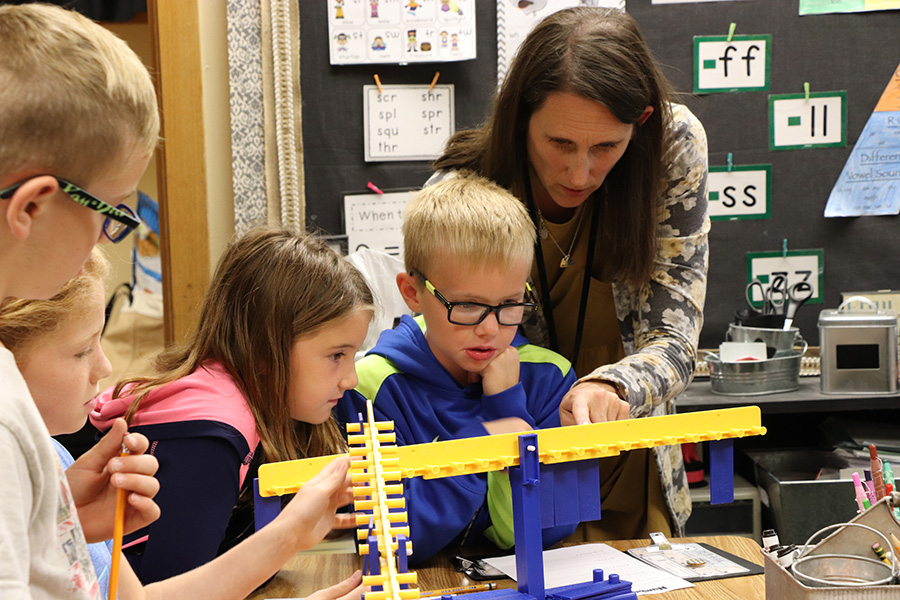
Up to 15 rural Nebraska elementary teachers are being sought to participate in the NebraskaSTEM leadership development program that begins Summer 2018 at Nebraska. Funded by a National Science Foundation Robert Noyce grant, participants will receive stipends to help pay the tuition and living costs of completing a 14-month master's degree in elementary education with a specialization in science, technology, engineering and math education. During the five-year program, NebraskaSTEM participants will also become master teaching fellows, equipping them with content and leadership skills to support and mentor colleagues while enhancing STEM education in rural Nebraska elementary schools. Master teaching fellows also receive annual stipends of $10,500 for four years. A research component of the grant will study how the local STEM initiatives that Noyce Master Teaching Fellows develop during the program can enhance rural elementary STEM teaching and teacher leadership to inform future programs.
Global Impact: Taking the Primarily Math program overseas
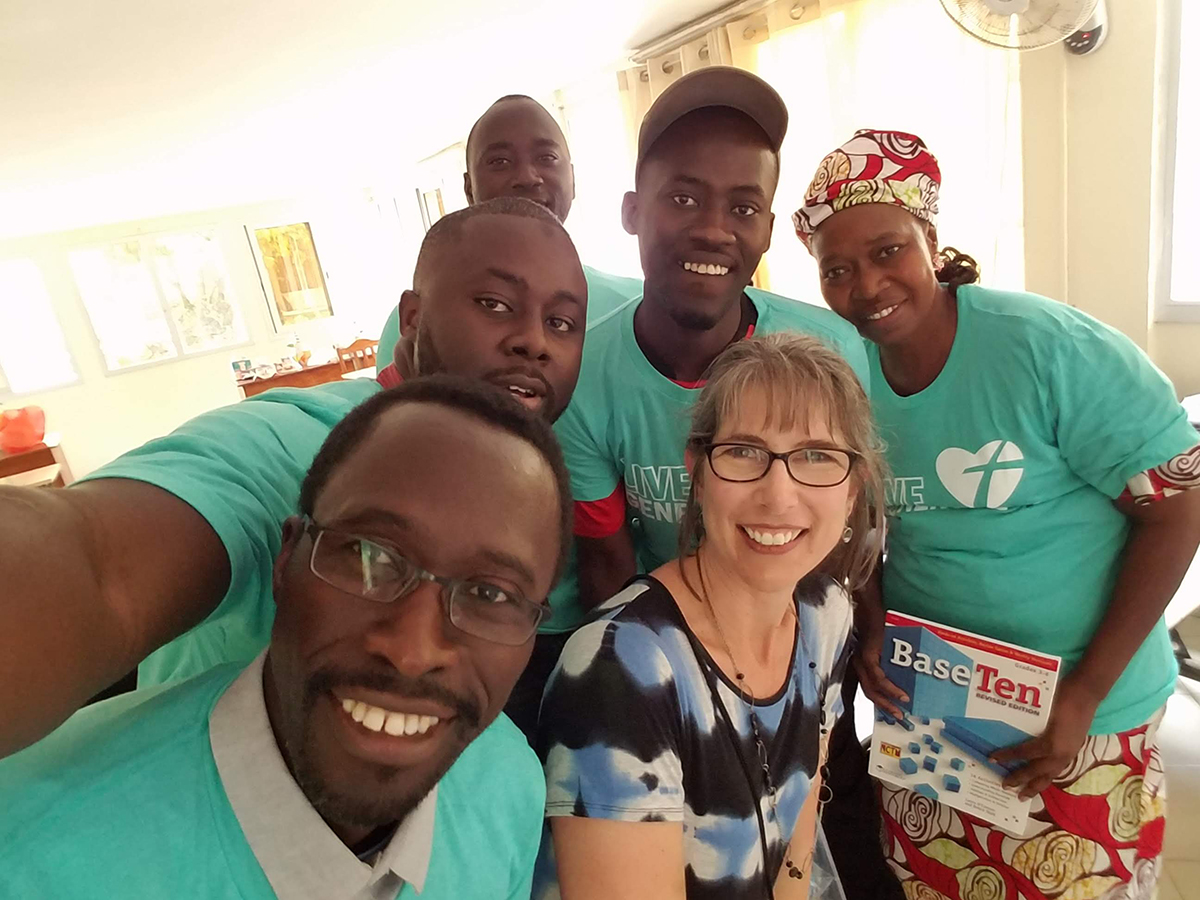
In July of this past summer, Dr. Michelle Homp had the privilege of traveling to Africa to introduce the Primarily Math program to seven teachers from the Senegalese-American Bilingual School (SABS) in Dakar, Senegal. This experience was one component of the 2018 Afrimath Summer Program. Headquartered in Dakar, Afrimath is an initiative designed to strengthen mathematics education in Senegal and all of Africa by engaging students and teachers in rich learning experiences that deepen their knowledge of mathematics and mathematics pedagogy. Afrimath founder and director, Masake (Kane) Ly, is a Senegalese native who was a high school math teacher at SABS while she earned her MAT degree through UNL’s online degree program. It was through this program that Homp met Ly when, after serving as her online instructor for several courses, she asked Homp to be her advisor. Ly ended up a traveling to Nebraska to take one of our summer graduate courses, and we developed a friendship that led to our continued collaboration. The 2018 Afrimath Summer Program consisted of a teacher program and a summer camp for middle school students and culminated in The Dakar Forum on Mathematics and Education. Ly provided the overall coordination for the program and led the summer camp while Homp led the professional development sessions for the teachers. Although only seven teachers from SABS participated, our plan is to train this group to become teacher leaders, who will, in turn, offer the Primarily Math experience to more elementary teachers in Dakar.
National Impact: SEMINAL
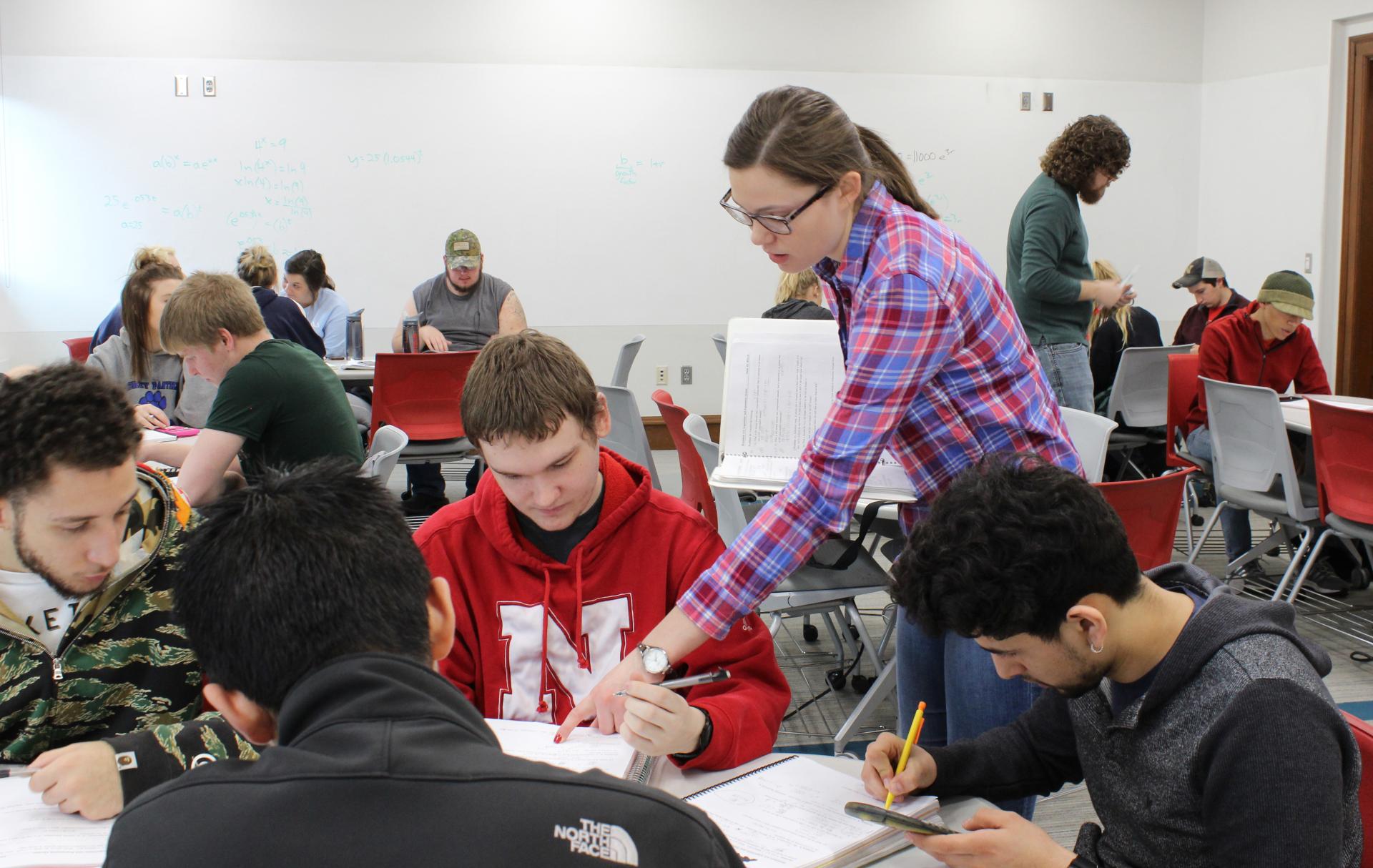
Nebraska’s SEMINAL project was featured in an article for The Christian Science Monitor called “Math makeover: Colleges swap lectures for active learning” in March. UNL is part of an initiative that fosters active learning methods – such as those found in debate and collaborative problem-solving – in college math courses. The project, called Student Engagement in Mathematics through an Institutional Network for Active Learning (SEMINAL), was born out of a crisis in university math: Too many students, especially students of color, were either failing out or giving up. In 2012, the President’s Council of Advisors on Science and Technology (PCAST) sought to determine why. Their findings: the traditional math classroom dynamic – with a lecturing instructor and an emphasis on individual work – doesn’t appeal to a broad swath of learners. Since then, academics across the country have been working to rethink what an accessible math class could look like. Kickstarted by a $3 million grant from the National Science Foundation, SEMINAL has provided funding and best practices training across the country. The Association for Public and Land-grant Universities (APLU) oversees SEMINAL and launched the initiative with three universities – including UNL – in 2016. In February, nine additional schools joined the effort.
Statewide Impact: Nebraska Math and Science Summer Institutes
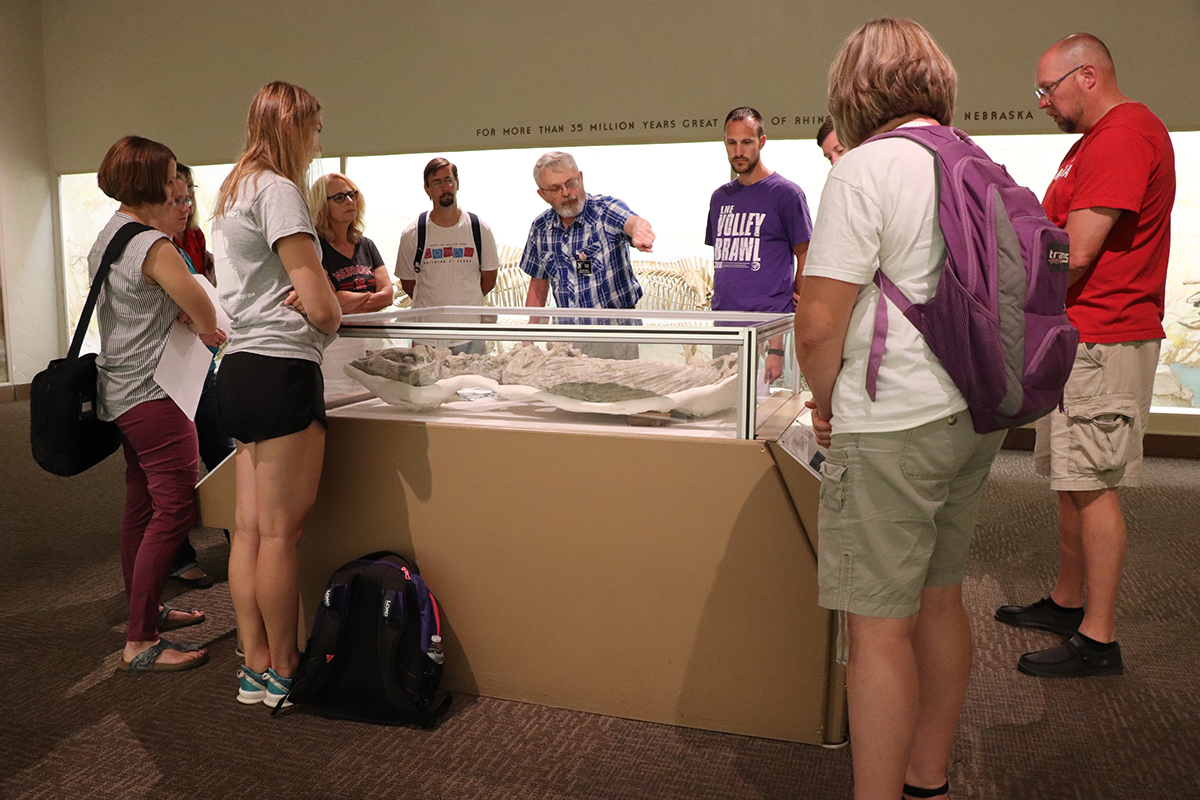
In summer 2018, 178 distinct teachers in math and science education took a course through the Nebraska Math and Science Summer Institutes, or other NebraskaMATH programs, for a total of 340 registrations in 26 math, science and pedagogy classes. Courses were held in Gretna, Hastings, Holdrege, La Vista, Lincoln, and Omaha. The TEAMS curriculum from 2017 was adapted and brought to Hastings for two courses, and a new geology course for K-12 teachers, “Nebraska Geology through Time,” was run in Lincoln.
Statewide Impact: Summit delves into standards' 3D learning
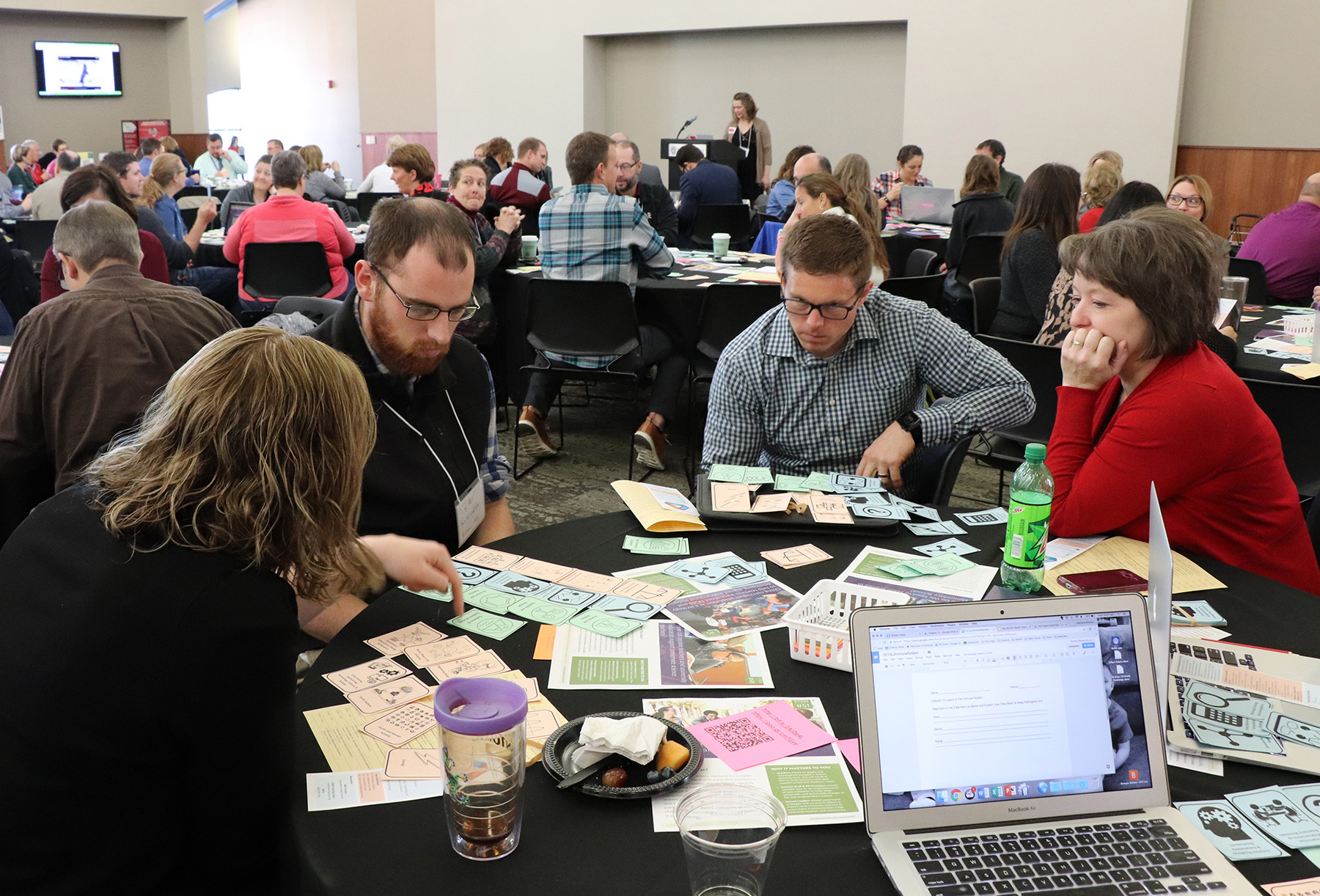
Nearly 250 people attended the second statewide Nebraska K-12 Science Education Summit on Dec. 11, 2017, at Nebraska Innovation Campus in Lincoln. Cory Forbes, associate professor of science education and the coordinator of the IANR Science Literacy Initiative at Nebraska, led the event along with Sara Cooper, the science education specialist at NDE. The summit gave participants the opportunity to get an update on Nebraska’s new College- and Career-Ready Standards; explore 3-dimensional learning, phenomena, and integrated science; learn about innovative K-12 science curriculum, resources, and programs developed by university faculty; and engage with science education stakeholders from across Nebraska. More than 150 K-12 teachers attended and were joined by Nebraska Department of Education officials; school district science directors; ESU science staff developers; and University of Nebraska-Lincoln faculty, staff, and graduate students.
Global Impact: Nebraska Conference for Undergraduate Women in Math
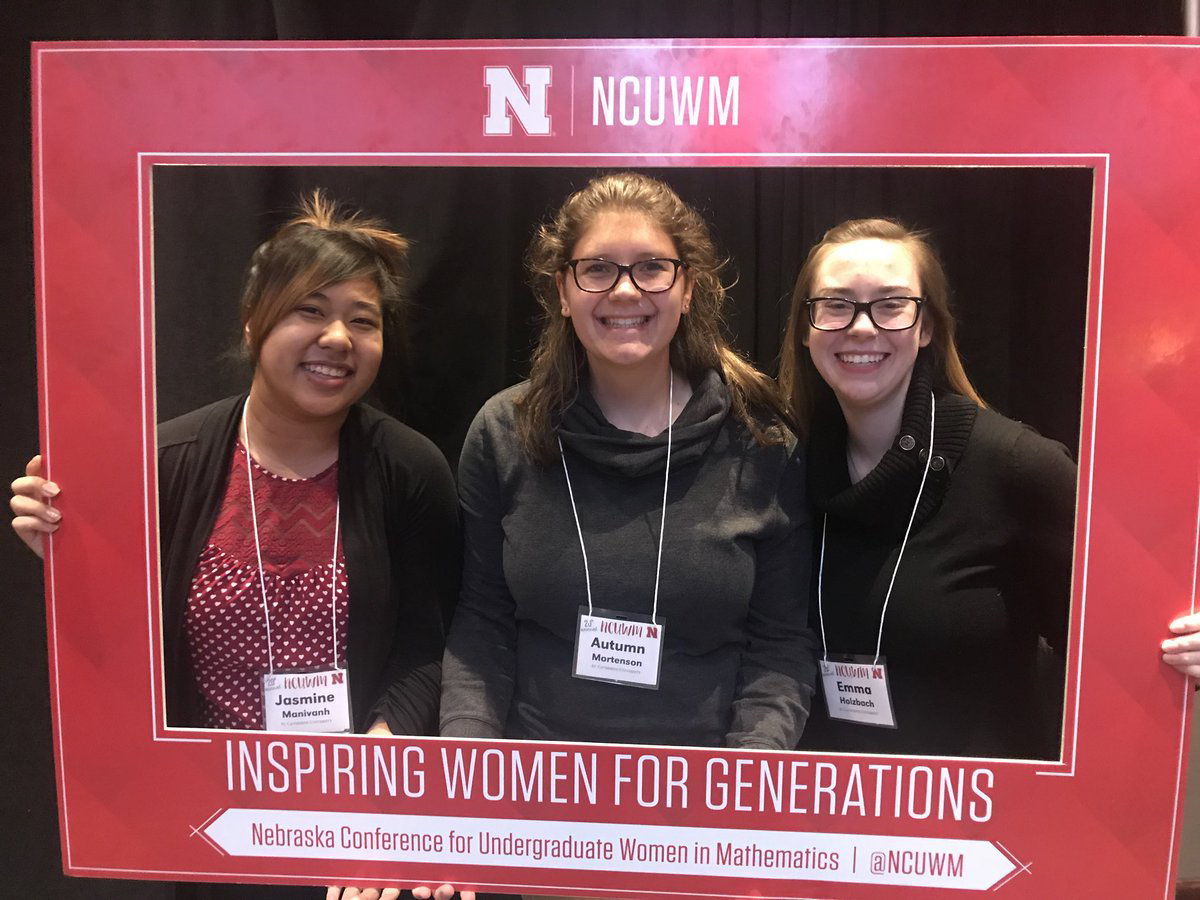
The 20th annual Nebraska Conference for Undergraduate Women in Mathematics was held Jan. 26-28, 2018, in Lincoln. We hosted 238 undergraduate participants from 136 institutions and 47 faculty members. Participants came from 40 states and the District of Columbia. Fifty-four students gave 47 talks and 84 students presented 72 posters at two poster sessions. Plenary speakers were Jill Pipher (Brown University) and Irena Swanson (Reed College). Invited panelists were Alissa Crans (Loyola Marymount), Cynthia Flores (California State University, Channel Islands), Mary Hegemann (Wakely), Christine Klymko (Lawrence Livermore National Lab), Anisah Nu’Man (Ursinus College), Emily Price (Google), Molly Stubblefield (Epic), Maggy Tomova (University of Iowa), Catherine Paolucci (NSF), and Elizabeth Russell (Department of Defense). To celebrate the 20th anniversary, our theme was "inspiring women for generations".
For more information: NCUWMNational Impact: Collaborative grant studies pre-service math teachers
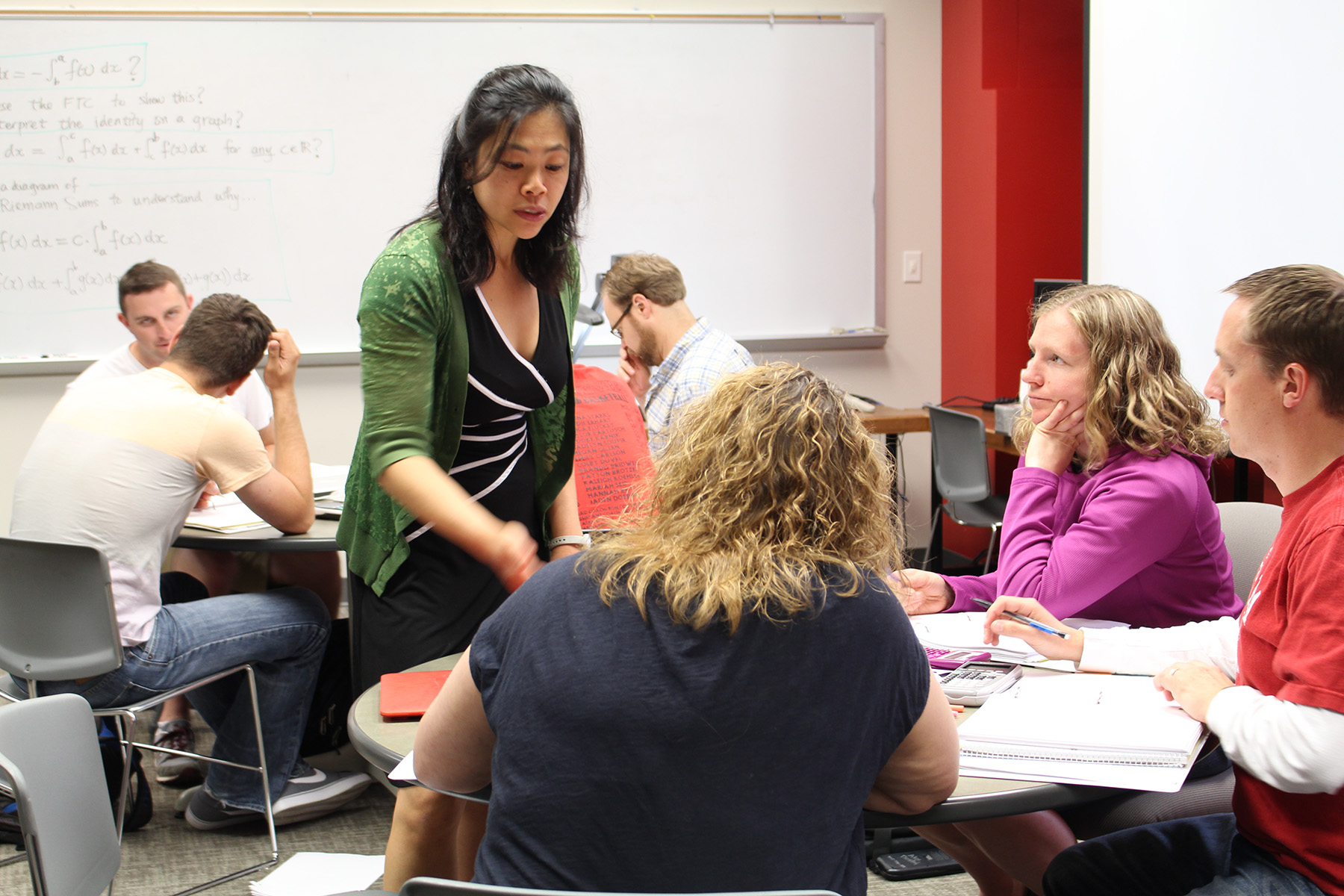
Yvonne Lai, assistant professor of mathematics at Nebraska, is the lead researcher for a $2 million, 5-year collaborative research grant from the National Science Foundation that aims to improve the mathematical education of future high school teachers nationwide. Mathematics of Doing, Understanding, Learning and Educating for Secondary Schools (MODULE(S2)) will examine how courses for future high school math teachers are taught, create curricula in four specific areas and investigate the impact of instruction of these new modules on pre-service teachers’ knowledge, with the goal of informing nationwide efforts in teacher education. This project builds on efforts by the Mathematics Teacher Education Partnership. Also, the Robert Noyce Teacher Scholarship program is providing co-funding for MODULE(S2) in recognition of its alignment with the broader teacher preparation goals of the Noyce effort.
Global Impact: Study finds lectures still dominate STEM education
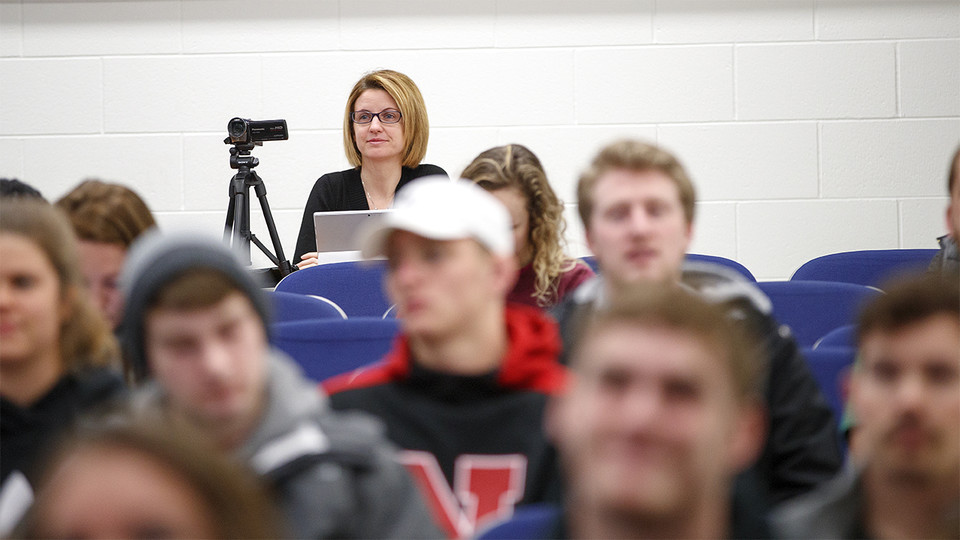
An analysis of more than 2,000 college classes in science, technology, engineering and math has imparted a lesson that might resonate with many students who sat through them: Enough with the lectures, already. Published March 29 in the journal Science, the largest-ever observational study of undergraduate STEM education monitored nearly 550 faculty as they taught more than 700 courses at 25 institutions across the United States and Canada. The University of Nebraska-Lincoln’s Marilyne Stains and her colleagues found that 55 percent of STEM classroom interactions consisted mostly of conventional lecturing, a style that prior research has identified as among the least effective at teaching and engaging students. Another 27 percent featured interactive lectures that had students participating in some group activities or answering multiple-choice questions with handheld clickers. Just 18 percent emphasized a student-centered style heavy on group work and discussions. The predominance of lecturing observed in the study persists despite many years of federal and state educational agencies advocating for more student-centered learning, the researchers said.
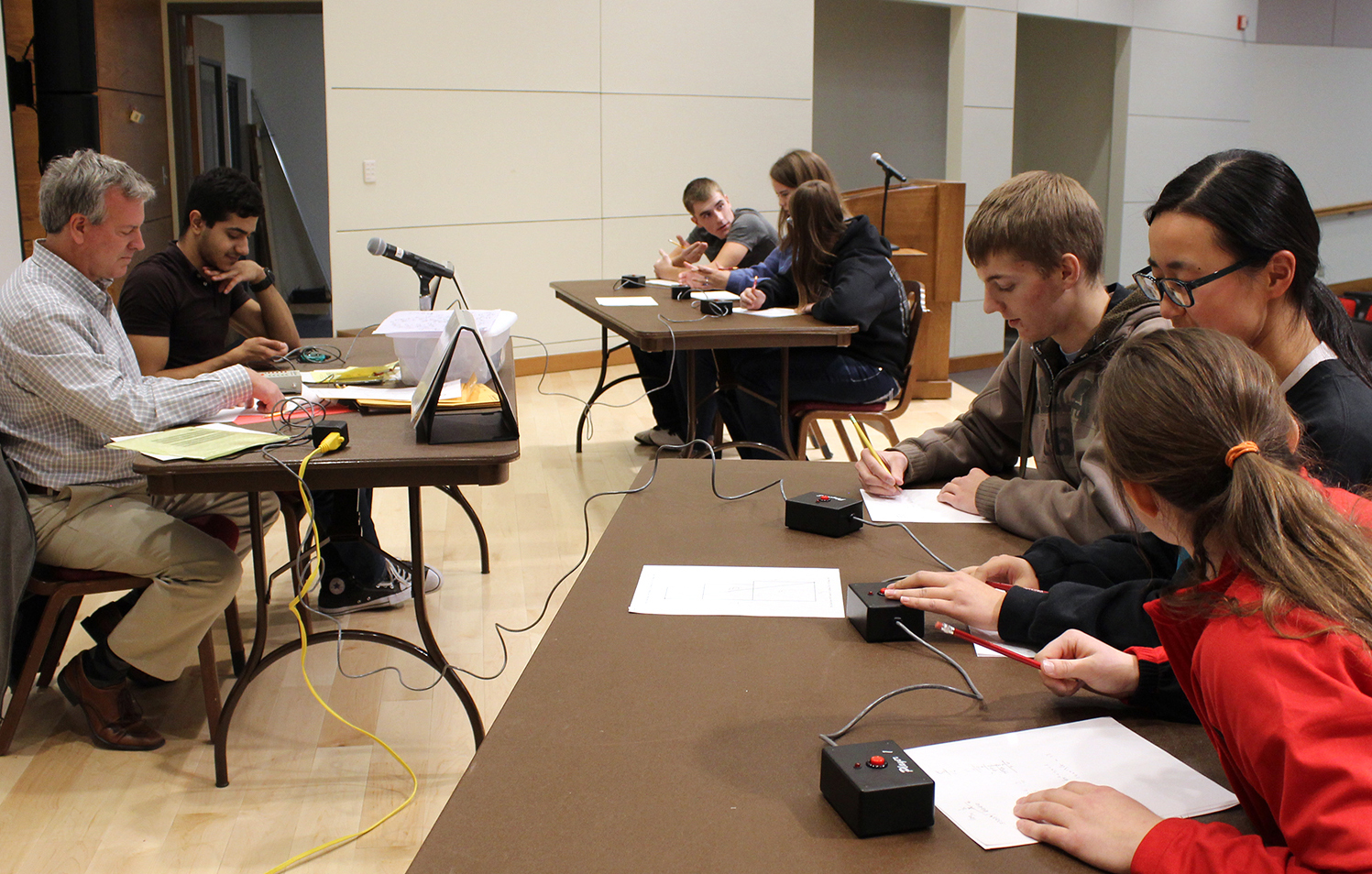
Statewide Impact: Math Day
The 28th Nebraska Math Day took place on Thursday, November 16, 2017, when we hosted 1,441 students. More than 100 Nebraska high schools bring students for a day of fast-paced mathematics. Math Day is designed for students in grades 9, 10, 11 and 12 and for exceptional students in lower grades. Math Day consists of one individual and two team mathematics competitions. All students participate in a multiple-choice, preliminary exam called PROBE I (Problems Requiring Original and Brilliant Effort). The top 40 students then move on to take the now famous essay exam called PROBE II. The PROBE top 10 Nebraska high school students (sum of PROBE I and II) are awarded a total of $34,000 in four-year scholarships to UNL.
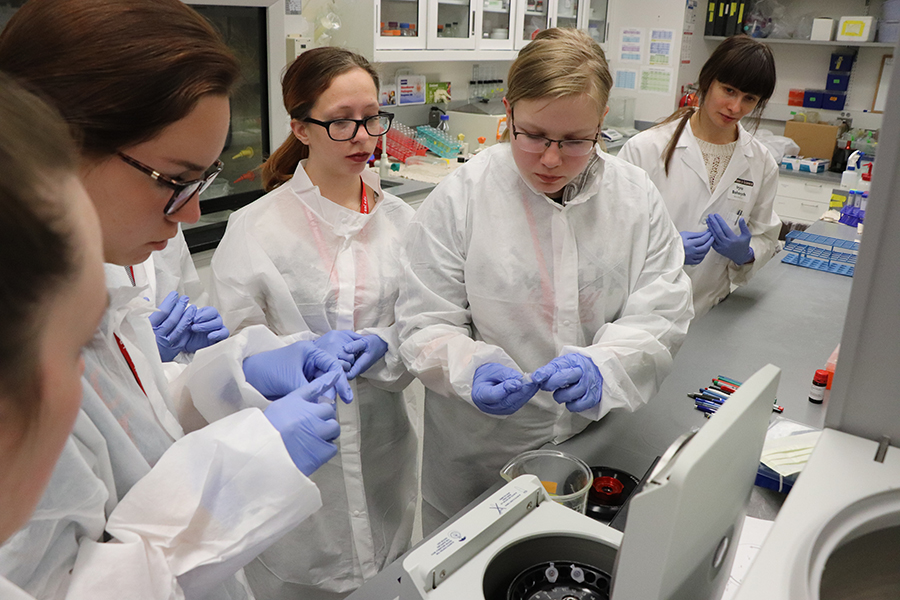
Regional Impact: Women in Science
The Nebraska Women in Science Conference exposes female high school students to a wide variety of science-related fields and encourages them to pursue majors and careers in STEM. This year, 73 students from 19 high schools in Nebraska, and two in Kansas, participated. Students toured either a UNL campus or CHI Health St. Elizabeth hospital. The keynote speaker at the banquet was Dayana Patera, M.D., of Nebraska Internal Medicine, PC. Students also took part in "speed networking discussions" with women in industry and Nebraska professors to get their questions answered quickly. Hands-on workshops were provided by Biological Sciences, Biological Systems Engineering, Chemistry, Computer Science, Dentistry, Entomology, Forestry, and Mathematics. Students visited department displays and conducted lab experiments at the Beadle Center, hosted by these faculty: Alfano, Blum, Buan, Cahoon, Clemente, DiRusso/van Dijk/Stone/Zhang, Khalimonchuk, Roston, and Schachtman.
Statewide Impact: Developing online tool on climate modeling for high schools
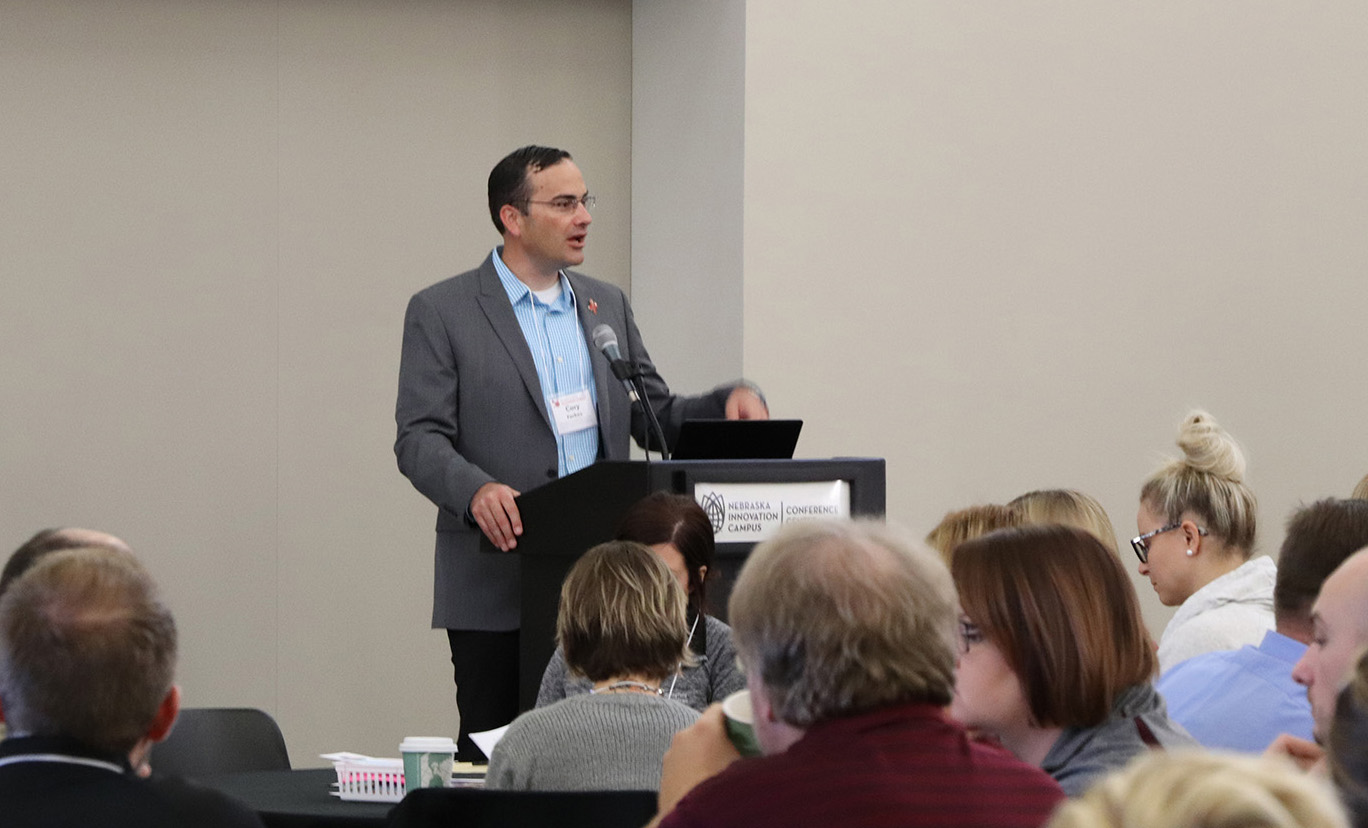
The University of Nebraska-Lincoln is working with Nebraska high schools to develop an online tool focused on climate modeling. Cory Forbes, associate professor of science education in the School of Natural Resources at Nebraska, will lead the four-year project funded by a $1.7 million grant from the National Science Foundation. Forbes said the team will use climate as a launch-pad for high school students to explore other issues related to food, energy and water through global climate models, which are used to produce daily weather reports and climate-related news. The first phase of the project will be focused on designing and piloting locally relevant, standards-based curriculum built around the online tool. The team will work with a small number of Lincoln Public School teachers to develop the curriculum, which will be piloted in high school science classrooms in LPS and other districts. By the project's fourth year, the team expects to include 55 secondary teachers and 3,000 students. The project also contributes to the missions of the Institute of Agriculture and Natural Resources' Science Literacy Initiative and Nebraska Collaborative for Food, Energy and Water Education.
more impacts
Master of Arts for Teachers degree: Since 2010, more than 100 teachers have completed the MAT degree through NMSSI courses and online courses during the academic year. Seven graduated in the 2017-18 academic year. Another 60 secondary teachers and educators from around the world are currently working on their MAT degree.
Jim Lewis is one of four Nebraska faculty members who has been named a fellow of the American Association for the Advancement of Science, the largest general scientific society in the world. Fellows are selected by peers for scientifically or socially distinguished achievements that advance science or its application. Lewis' ability to build consensus has enabled him to profoundly influence mathematics education at the university, in Nebraska and nationwide. He is passionate about uniting these groups to improve content knowledge, classroom techniques and student assessment. He has led three National Science Foundation-funded projects – Math in the Middle, NebraskaMATH and NebraskaNOYCE – aimed at fostering these collaborations. He also is director of Nebraska's Center for Science, Mathematics and Computer Education, focused on improving teaching and learning. Currently, Lewis is acting assistant director of the NSF's Education and Human Resources Directorate.